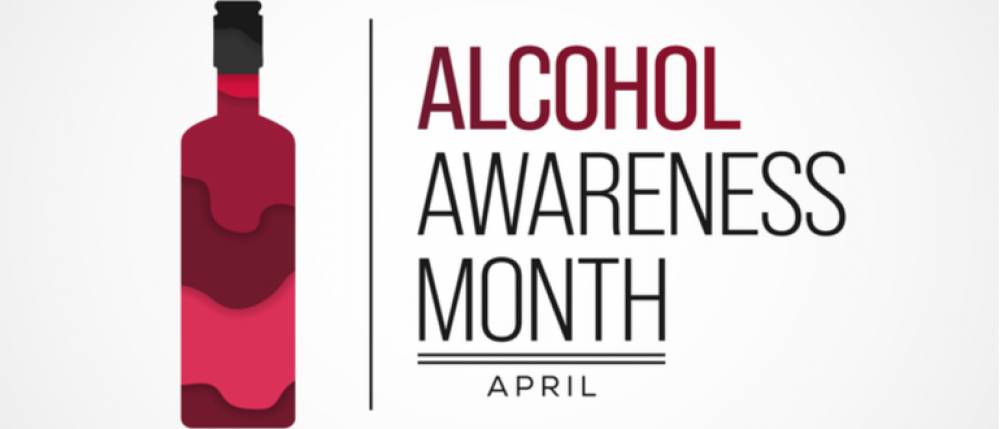Every year, National Alcohol Screening Day raises awareness about the harmful effects of alcohol abuse and alcohol dependency. Each year on the Thursday of the first full week in April, these screens offer anonymous and confidential opportunities for those with addiction to seek help. This day is important to us as it serves as a reminder of how our dependency can affect future generations. This holiday also raises awareness of the importance of a healthy lifestyle and helps individuals overcome their alcohol addiction.
While most people do not abuse alcohol, some do not realize the effects alcohol has on them and their lives. Others, do not realize the risks they take even when they only occasionally indulge in alcohol. Taking an alcohol screening may point out areas of concern we may not be aware of. For many, it may be the first step toward recovery.
Alcohol abuse can lead to many recognized health problems which can include anxiety, depression, and sexual problems. Where alcohol abuse occurs over a longer period, there is an increased risk of developing certain cancers, liver cirrhosis, high blood pressure, and heart problems.
How Does Addiction Develop in the Brain?
Alcohol, like other drugs, has a powerful effect on the brain, producing pleasurable feelings and blunting negative feelings. These feelings can motivate some people to drink alcohol again and again, despite possible risks to their health and well-being. For example, research shows that over time, drinking to cope with stress—while it may provide temporary relief from emotional discomfort—tends to enhance negative emotional states between bouts of alcohol consumption. These changes can motivate further drinking and cause an individual to become stuck in an unhealthy cycle of alcohol consumption.
As individuals continue to drink alcohol over time, progressive changes may occur in the structure and function of their brains. These changes can compromise brain function and drive the transition from controlled, occasional use to chronic misuse, which can be difficult to control. The changes can endure long after a person stops consuming alcohol, and can contribute to relapse in drinking.
Stages of the Addiction Cycle
- Binge/Intoxication Stage: reward, incentive salience, and pathological habits
- During this stage, a person experiences the rewarding effects of alcohol, such as euphoria, the reduction of anxiety, and the easing of social interactions.
- Repeated activation of the basal ganglia’s reward system reinforces alcohol-drinking behavior, increasing the likelihood of repeated consumption. The basal ganglia play an important role in motivation as well as in the formation of habits and other routine behaviors.
- This repeated activation of the basal ganglia also ultimately triggers changes in how a person responds to stimuli associated with drinking alcohol, such as specific people, places, or alcohol-associated cues such as certain glassware or images or descriptions of drinking. Over time, these stimuli can trigger powerful urges to drink alcohol.
- Repeated alcohol consumption also results in changes in the basal ganglia that lead to habit formation, ultimately contributing to compulsive use.
- Negative Affect/Withdrawal Stage: reward deficits and stress surfeit
- When a person who is addicted to alcohol stops drinking, they experience withdrawal symptoms—or symptoms that are opposite to the positive effects of alcohol that are experienced when drinking it. These symptoms can be physical (sleep disturbances, pain, feelings of illness) and emotional (dysphoria, irritability, anxiety, and emotional pain).
- The negative feelings associated with alcohol withdrawal are thought to come from two sources. First, a diminished activation in the reward systems—or a reward deficit—of the basal ganglia makes it difficult for people to experience the pleasures of everyday living. Second, an increased activation of the brain’s stress systems—or stress surfeit in the extended amygdala contributes to anxiety, irritability, and unease.
- At this stage, the person no longer drinks alcohol for the pleasurable effects (“high”), but rather to escape the “low” feelings to which chronic alcohol misuse has contributed.
- Preoccupation/Anticipation Stage: craving, impulsivity, and executive function
- This is the stage at which an individual seeks alcohol again after a period of abstinence. A person becomes preoccupied with alcohol and how to get more of it and looks forward to the next time he or she consumes it.
- The prefrontal cortex—an area of the brain responsible for executive function, including the ability to organize thoughts and activities, prioritize tasks, manage time, and make decisions—is compromised in people experiencing alcohol addiction. As a result, this area of the brain plays a key role in this stage.
What are the symptoms of alcoholism?
- increased quantity or frequency of use
- high tolerance for alcohol, or lack of “hangover” symptoms
- drinking at inappropriate times, such as first thing in the morning, or in places like church or work
- wanting to be where alcohol is present and avoiding situations where there is none
- changes in friendships; someone with an alcohol addiction may choose friends who also drink heavily
- avoiding contact with loved ones
- hiding alcohol, or hiding while drinking
- dependence on alcohol to function in everyday life
- increased lethargy, depression, or other emotional issues
- legal or professional problems such as an arrest or loss of a job
How is alcohol use disorder treated?
- Behavioral therapies: Counseling, or talk therapy, with a healthcare provider like a psychologist or mental health counselor can teach you ways to change your behavior. Motivational, cognitive-behavioral, contingency, and 12-step facilitation are the most commonly used techniques.
- Medications: The U.S. Food & Drug Administration has approved naltrexone and acamprosate for the treatment of alcohol use disorder. Topiramate and gabapentin can also decrease cravings in some people. An older medication — disulfiram — is now used only rarely. These medications seem to help decrease the background obsessional thinking around alcohol.
- Support groups: Group meetings with other people who have alcohol use disorder can help you stay sober. Alcoholics Anonymous (AA) meetings are usually free and are available in most communities. Other styles of recovery groups include: Celebrate! Recovery (Christian focus), Rational Recovery (non-spiritual), and Recovery Dharma (mindfulness/Buddhist focus).
How to approach someone with alcohol use disorder
Step 1. Learn about alcohol use disorder
Step 2. Practice what you’re going to say
Step 3: Pick the right time and place
Step 4: Approach and listen with honesty and compassion
Step 5: Offer your support
Step 6: Intervene
Helpline for alcohol addiction
NATIONAL TOLL-FREE DRUG -DE ADDICTION HELPLINE: 1800-11-0031
TOBACCO QUIT HELPLINE: – 1800-11-2356 or Give a missed call on 011-22901701 for registration.
DE ADDICTION CENTRE ( PRIVATE PREMIUM – ADVERTISEMENT ) Contact: 1800-547-2060
Cadabam’s Anunitha: 96111 94949




